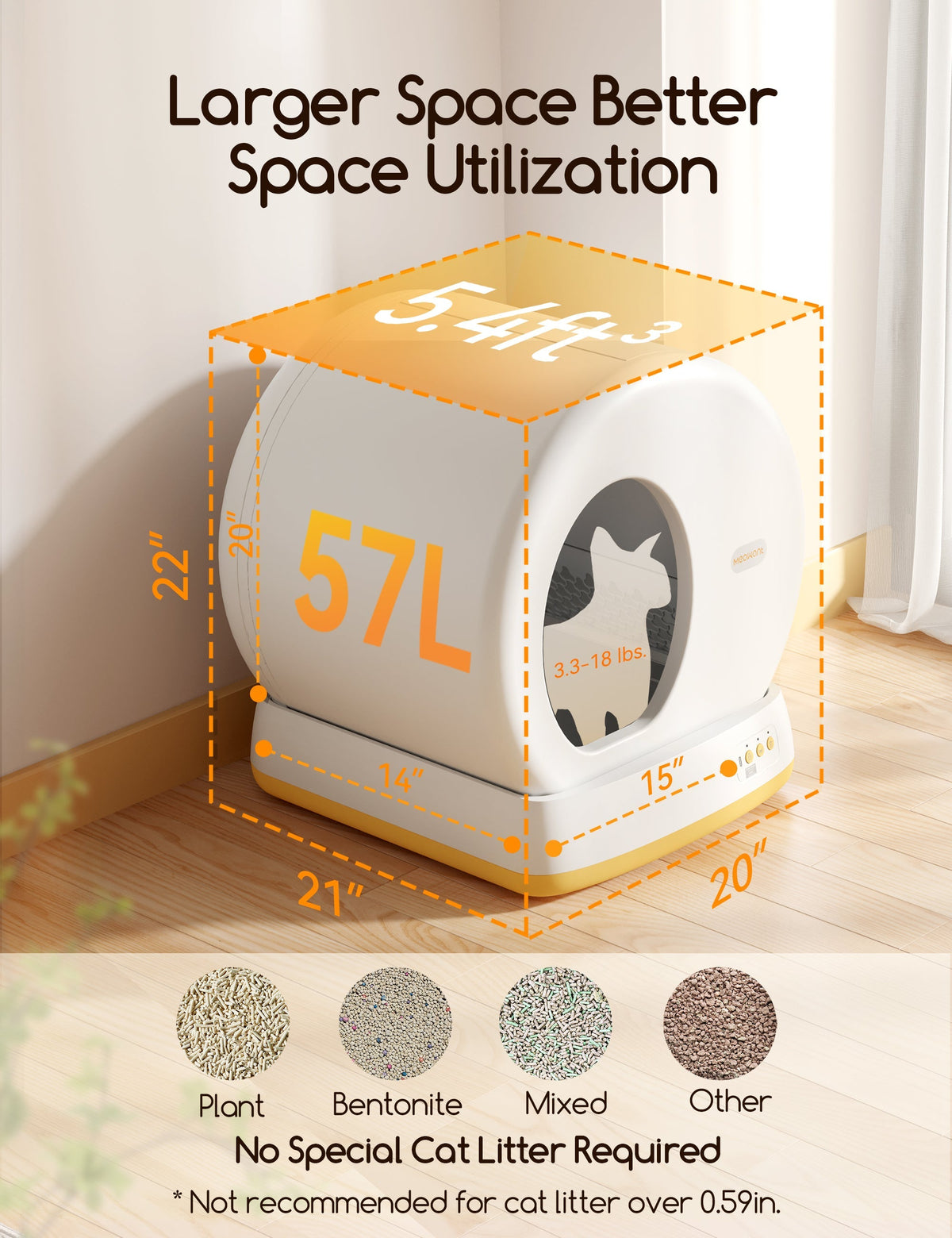Why Did My Cat Stop Using The Litter Box

If you've found yourself staring at a puddle (or worse) on the floor and wondering, "Why did my cat stop using the litter box?"—you're not alone. This behavior is quite common and almost always signals an underlying issue, whether it's medical, behavioral, or environmental. Ignoring the problem can lead to continued accidents and stress for both you and your feline friend, so let's explore the most common reasons behind this behavior and how to fix it.
Part 1. Why Do Cats Stop Using the Litter Box?
Figuring out the root cause is the first step to solving the problem. There's no single answer to why cats abandon their litter box. However, these are the most frequent culprits:
1. Medical Issues
If your cat suddenly stops using the litter box, the first thing you should do is rule out health problems. Urinary tract infections (UTIs), kidney disease, diabetes, and bladder stones can make urination painful or uncontrollable. If your cat is straining to urinate, visiting the litter box frequently without producing much, or peeing outside the box, get them to the vet immediately. What seems like a behavioral issue could actually be a medical emergency.
2. Litter Box Preferences
Cats are picky creatures, especially when it comes to their bathroom habits. A dirty litter box, an unfamiliar type of litter, or even an unsuitable box size can drive them away. Some cats hate scented litter or certain textures (like crystals or pellets). A cramped litter box can discourage use, especially for larger cats. The box should be at least 1.5 times your cat's length.
3. Stress or Anxiety
Cats are creatures of habit, and even minor changes in their environment can cause stress. A new pet, a baby, loud noises, visitors, or even rearranging furniture can trigger anxiety-related litter box avoidance. If so, try providing your cat with a quiet, secure space, using pheromone diffusers, and maintaining a consistent routine.
4. Location Issues
Would you want to use a toilet in the middle of a busy hallway? Probably not. If the litter box is in a noisy, high-traffic area (like near a washing machine or in a kid's playroom), your cat might avoid it. Move it to a quiet, low-traffic spot where they feel safe.
5. Behavioral Problems
Sometimes, the issue isn't the litter box itself—it's your cat's instincts kicking in. Unneutered males may spray to mark territory, while some cats develop aversions due to past negative experiences (like being startled while using the box). If behavioral issues are at play, consult a vet or feline behaviorist for targeted solutions.
Part 2. How to Encourage Your Cat to Use the Litter Box Again
If your cat has suddenly decided their litter box is off-limits, don't worry—there are ways to win them back. Here's how to encourage them to get back to their normal routine:
Adjust Litter Box Setup:
Cats are territorial, and sharing a single box can lead to protests. Follow the golden rule: one box per cat, plus one extra. This prevents competition and gives each cat options. Some cats prefer unscented, fine-grain litter, while others like larger granules. If they prefer something softer, test out silica-free or natural options. A spacious, uncovered litter box placed in a quiet area can make a huge difference in your cat's comfort.
Maintain Cleanliness:
Cats are fastidious animals. Scoop the litter box at least once a day, and do a full litter change and box cleaning regularly. A dirty box can easily drive your cat away. If you're tired of constant scooping, consider a self-cleaning litter box.
Reduce Stress:
If your cat's avoidance is due to anxiety, provide a calm and predictable environment. Avoid sudden changes, introduce new pets gradually, and use calming pheromones if needed.
Add More Litter Boxes:
If you have two cats but don't want to buy multiple litter boxes, opt for a high-capacity self-cleaning model. The Meowant SC02 offers a spacious 75L capacity, ensuring comfort for multiple cats. With automatic waste cleaning, it eliminates daily scooping, and its smart app lets you monitor your cats' litter habits. Plus, it operates at under 38dB—virtually silent—keeping your home peaceful for both you and your feline friends.
Final Thoughts
If your cat stops using the litter box, don’t ignore it—but don’t panic. Start by checking for medical issues, then optimize their litter setup. Keep it clean, reduce stress, and consider upgrades like the Meowant Self-Cleaning Litter Box for a hassle-free solution. With patience and the right adjustments, your cat should be back to good habits in no time.
If the problem persists, consult your vet or a feline behaviorist. Your cat will thank you!
